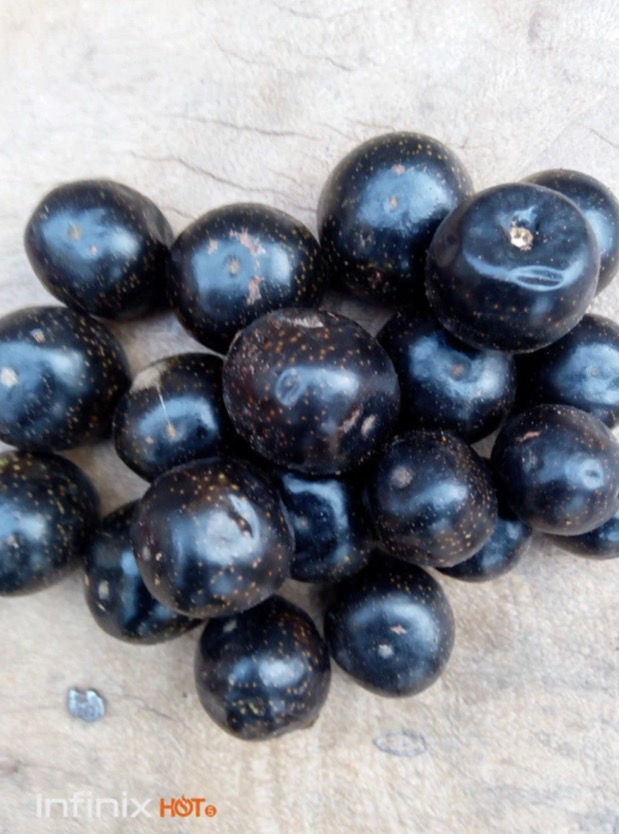Vitex doniana(African black plum,20 seeds/$10 shipping $15,phyto certificate$12
20 seeds/purchase General Information: Black plum is a deciduous tree with a heavy, rounded crown; it usually grows up to 20 metres tall, with some specimens reaching 25 metres. The bole can be clear of branches for up to 5 metres. A very useful, multi-purpose tree providing food, medicines and materials. Often harvested from the wild, the tree is also cultivated or semi-cultivated near villages. The fruit can become a staple food during the rainy season. It is also being trialled for its potential as a fruit crop in areas such as Cuba. The edible fruits and leaves are sold in local markets, and the wood is also sometimes traded. Edible Uses: Fruit - raw, cooked, candied etc. A sweet flavour with a mealy texture, it tastes a bit like prunes. It contains vitamins A and B and can be made into a jam. The jam is of good quality, somewhat like plum jam but better for spreading. A syrup made from the fruit pulp can be used instead of other syrups as a nutritive sweetener. The black fruit is about 2cm long. The fruit can be made into a wine. Wine obtained from controlled fermentation had 10.5% alcohol content, and wine obtained from spontaneous fermentation 5%. Seeds: The seeds are roasted and us up ed to make a coffee-like drink. The leaves can be used as a tea substitute. Other Uses: An ink is produced from the dried fruits, young leaves and bark. The blackish extract obtained by boiling the leaves, bark, roots and/or fruits is used as ink and as a dye for clothes. yield about 30% oil. The oil has high iodine and low saponification values and can be used for skin cream, resin and paint production. The wood is said to be used as friction sticks to start a fire. GERMINATION PROCEDURES: 1. Soak seeds overnight in hot water. 2. Clean the seeds in the next morning then used fresh room temperature water and soak them until evening. 3. Then use 1g/1L dilution of GA3/Gibberellic Acid and soak them overnight. 4. Seeds are then put in individual bags filled with potting mix made of vermiculite, perlite and soil. 5. Seeds are Kept in shade net for 50% sunlight, watered to moisten the medium. 6. Germinate the seeds outside with 73/93 degrees F daily temperatures and 50% humidity is necessary. 7. You will start to get germination after 5 weeks of planting.
PriceFrom $37.00




